







Brian Kruger Violin/Viola


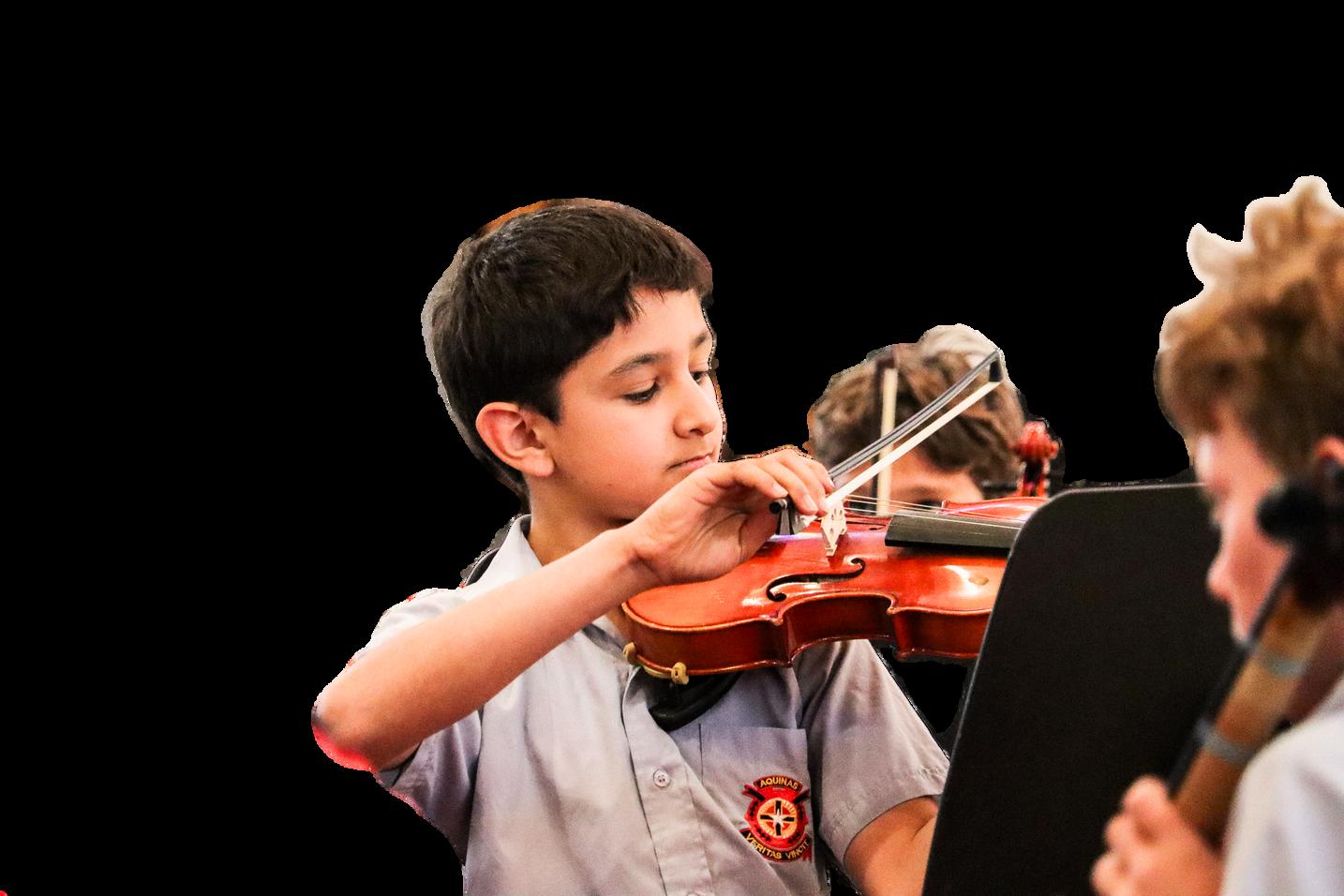
Amber DayCello
Tom BerkmannDoubleBass
Marc OsborneAltoSax/Clarinet/Flute
Adrian KellyTrumpet
Rob ColemanTrombone
Nicole DixonFrenchHorn
Simon MontgomeryBassoon/Oboe









Brian Kruger Violin/Viola



Amber DayCello
Tom BerkmannDoubleBass
Marc OsborneAltoSax/Clarinet/Flute
Adrian KellyTrumpet
Rob ColemanTrombone
Nicole DixonFrenchHorn
Simon MontgomeryBassoon/Oboe
The major benefits of teaching music are widely understood by educational experts. There is an abundance of academic literature highlighting the cognitive development, socialisation, as well as intrinsic and extrinsic benefits and achievements of students when undertaking instrumental music lessons
Decades of research clearly shows that learning a musical instrument at an early age, can help to develop students’ abilities in all aspects of their learning such as:
Contributing strongly to personal intelligences by the development of emotional and social skills through group singing, dancing playing and creating;
Enhancing social skills and self-esteem; Developing physical skills;
Enhancing emotional development; Enhancing creativity and expression;
Developing fine motor skills; and • Enhancing numeracy and literacy
When investigating Music education in other nations, it is evident that Australia in considerably behind It is notable that the countries with the highest scores in Reading, Mathematics and Science, including China (Shanghai), Hong Kong, Finland, Singapore and South Korea, mandate approximately one to two hours of Music education per week

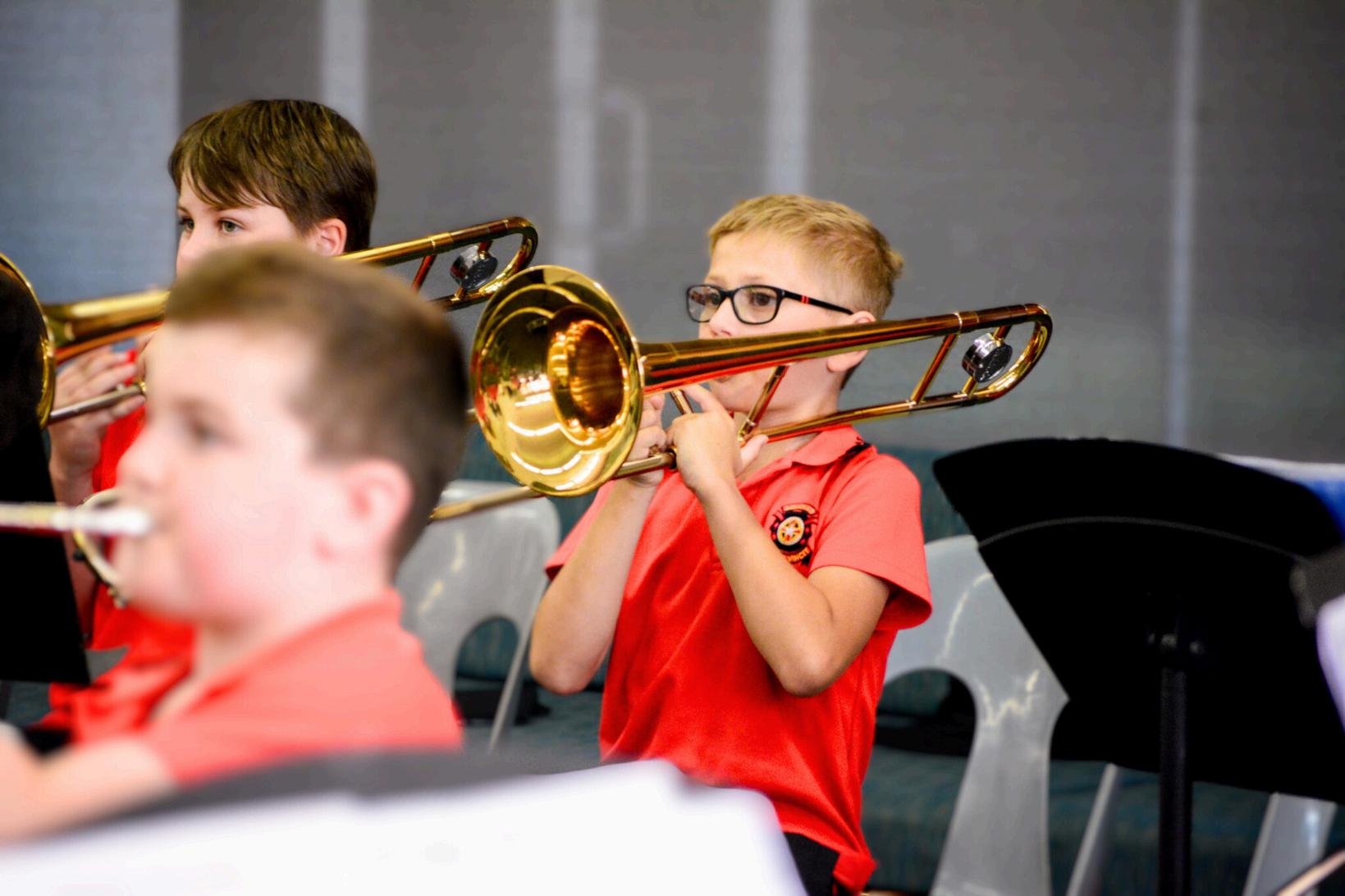


Learning a musical instrument at Aquinas College will support and educate each individual student intellectually, physically, socially, and emotionally through creative and active music-making In addition, the program will aid in further developing students’ numeracy, literacy and fine motor skills
All Year Four students will participate in the program for three academic terms, after which the college will offer students the opportunity to continue or withdraw from the program Lessons, instrument hire, music practice diaries and method books are provided free of charge. For those students who choose to continue with the program into Year Five, parents will fund their child’s participation in the instrumental music program
In addition to lessons, students will experience being part of an ensemble The Year Four Band and String Orchestra will commence in Term Two once students have learnt a sufficient number of notes The orchestra will rehearse for one hour per week during the school day. Instrumental teachers participate in the band rehearsal to model effective ensemble practices and etiquette to students Performance opportunities as part of the band, small ensemble, or as a solo performer, expose students to a number of positive mind sets that channel into other aspects of school life
These include:
Self-confidence and presentation skills
Problem solving, perseverance and resilience
Empathy and compassion
Social skills and a sense of teamwork
Academic research conducted in both Australia and internationally clearly suggests that similar programs have been implemented with enormous success for a number of years in many schools It is crucial that Aquinas College is able to provide students with a holistic education
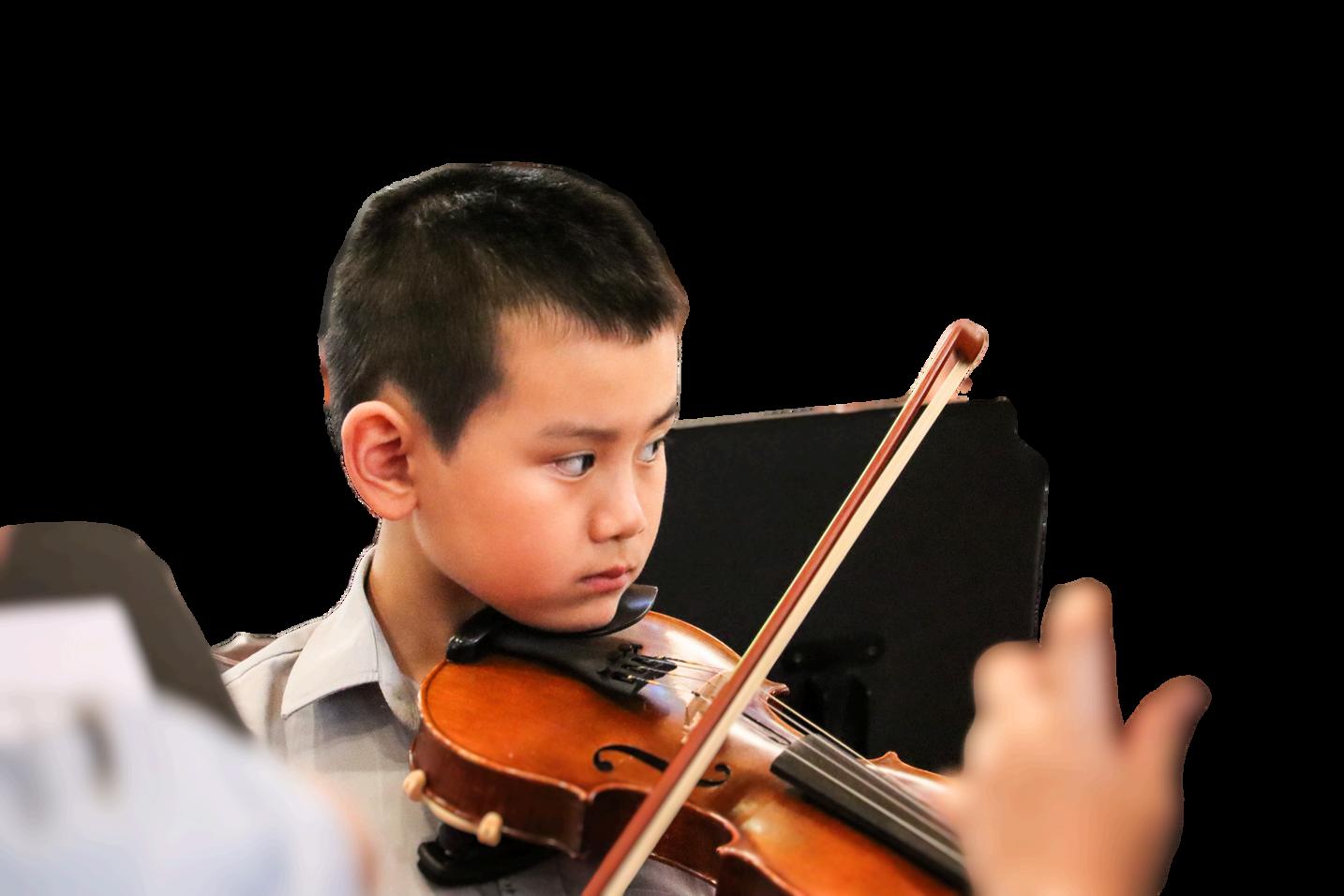

Brian Kruger is a violinist and pianist with extensive performance, composition and teaching experience
Having been a concertmaster and soloist for the Perth Symphony Orchestra and Australian Baroque, he is also known for his feature film and rap music composition portfolio, having been granted the Martin Simms and Western Australian Music Industry awards among others in these fields
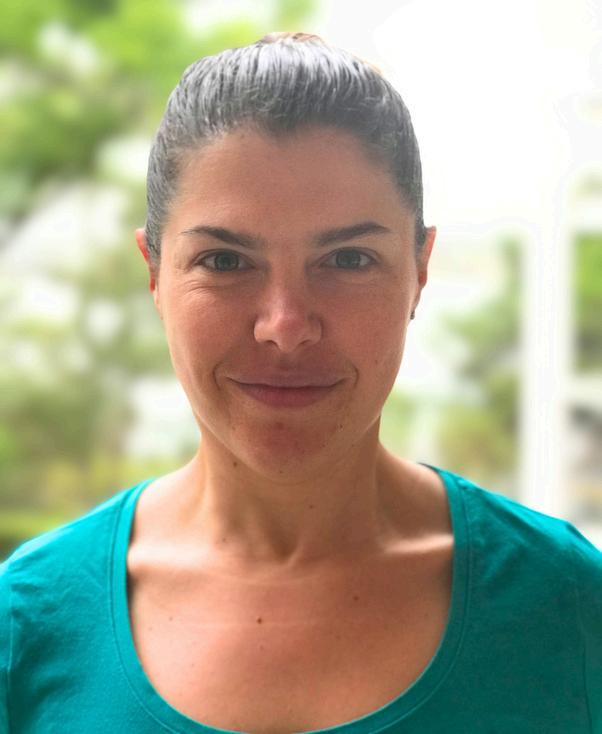
as being a member of the WA Youth Orchestra for many years, developed her love for performing and lead her to pursue a career in music.
After graduating from Penrhos College, Amber completed a Bachelor of Music Performance at UWA before relocating to London to undertake postgraduate studies in both modern and baroque cello at the Royal College of Music
Throughout her career, Amber has worked extensively as a freelance musician both locally
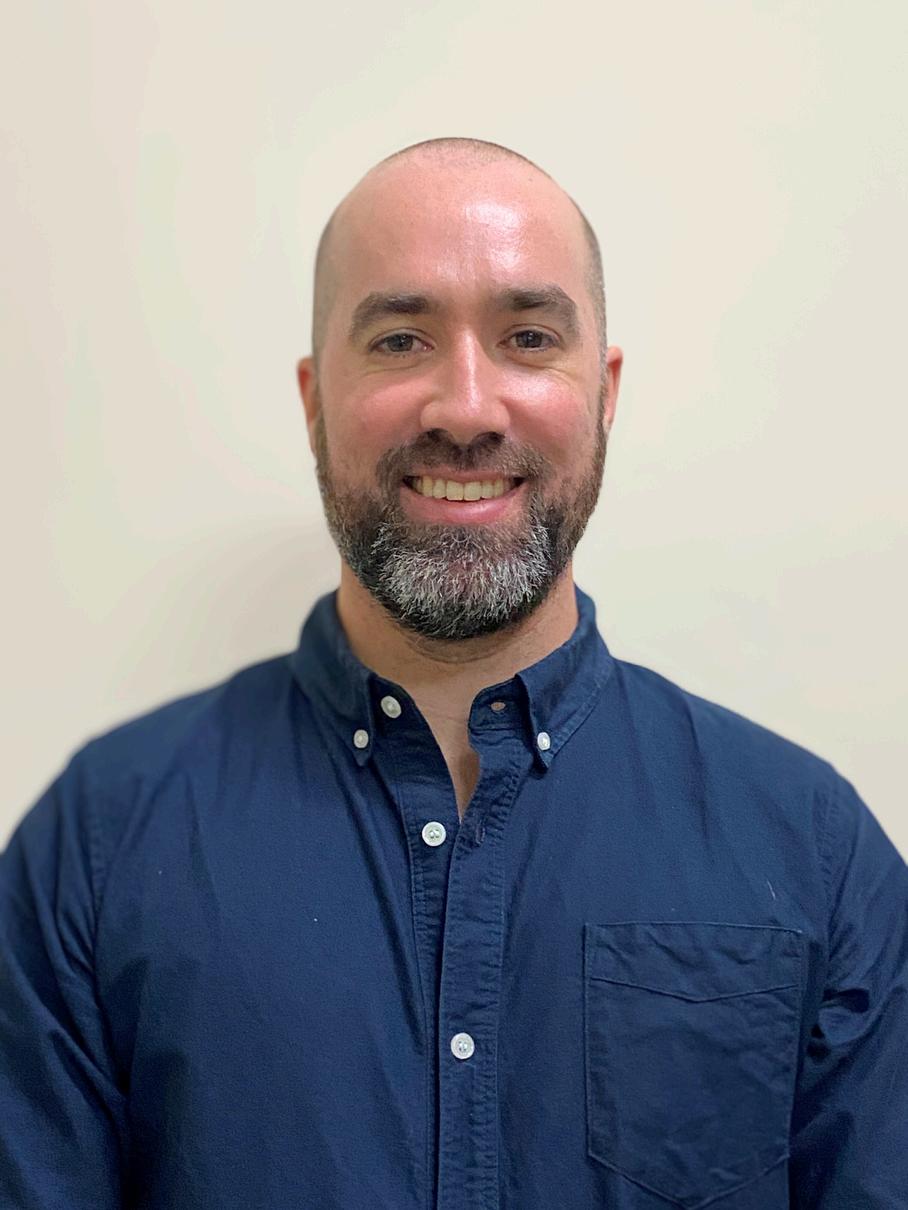
and overseas as a member of various chamber groups and orchestras for public performances in a wide range of genres, as well as organising and performing in small ensembles for private and corporate functions and events
She is currently looking forward to performing in the orchestra Since returning from the UK in 2007, Amber has also been teaching young cellists both privately and at a number of private schools around Perth
She enjoys seeing students’ progress and grow and confidence as they work towards achieving their various goals Amber has been a part of the string programs at Trinity College (2007-2015) and St
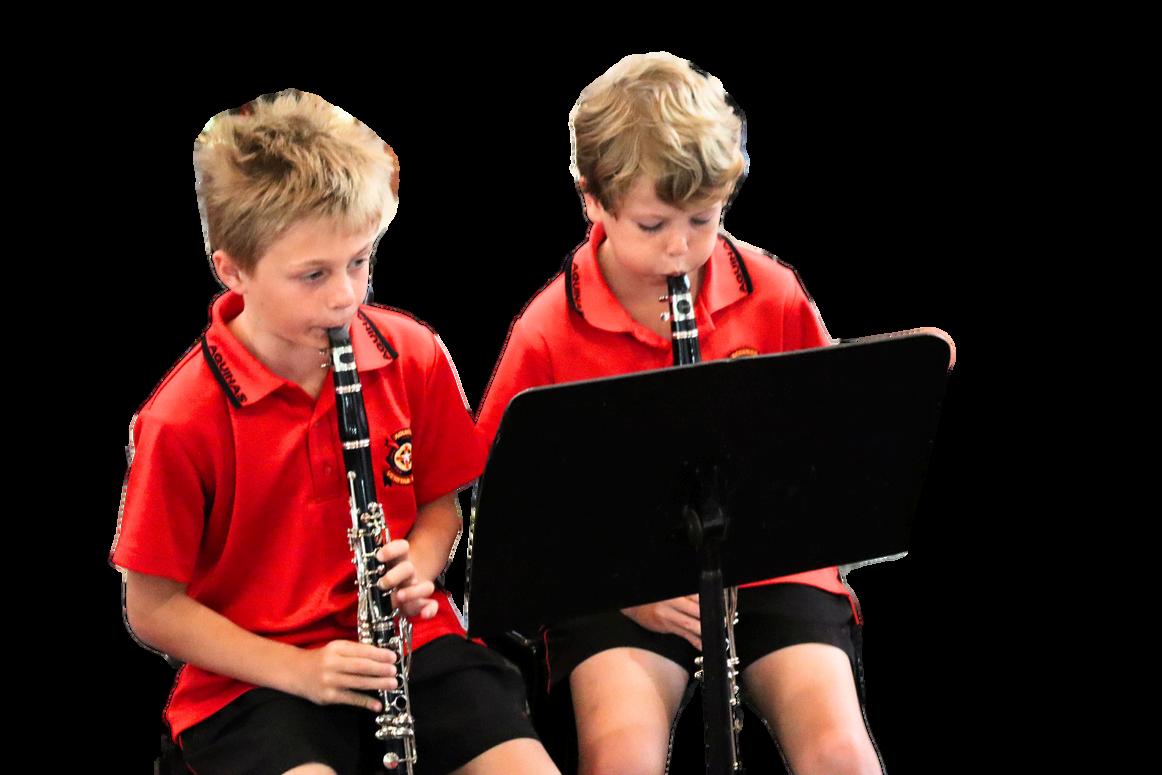

Tom Berkmann is a highly accomplished bassist, educator, and audio engineer with over 15 years of international experience in performance and music education Originally from Germany, he holds a Master of Music in Jazz Double Bass from the Manhattan School of Music in New York and a Master of Science in Audio Technology from the Technical University of Berlin
As a dedicated musician and educator, Tom has worked with students in Germany, the USA, and now Australia, sharing his deep knowledge of double bass, electric bass, and music theory
His extensive career includes performances at renowned venues such as Carnegie Hall and the Berlin Philharmonic as well as collaborations with excellence in his students, inspiring them to elop their unique musical voices

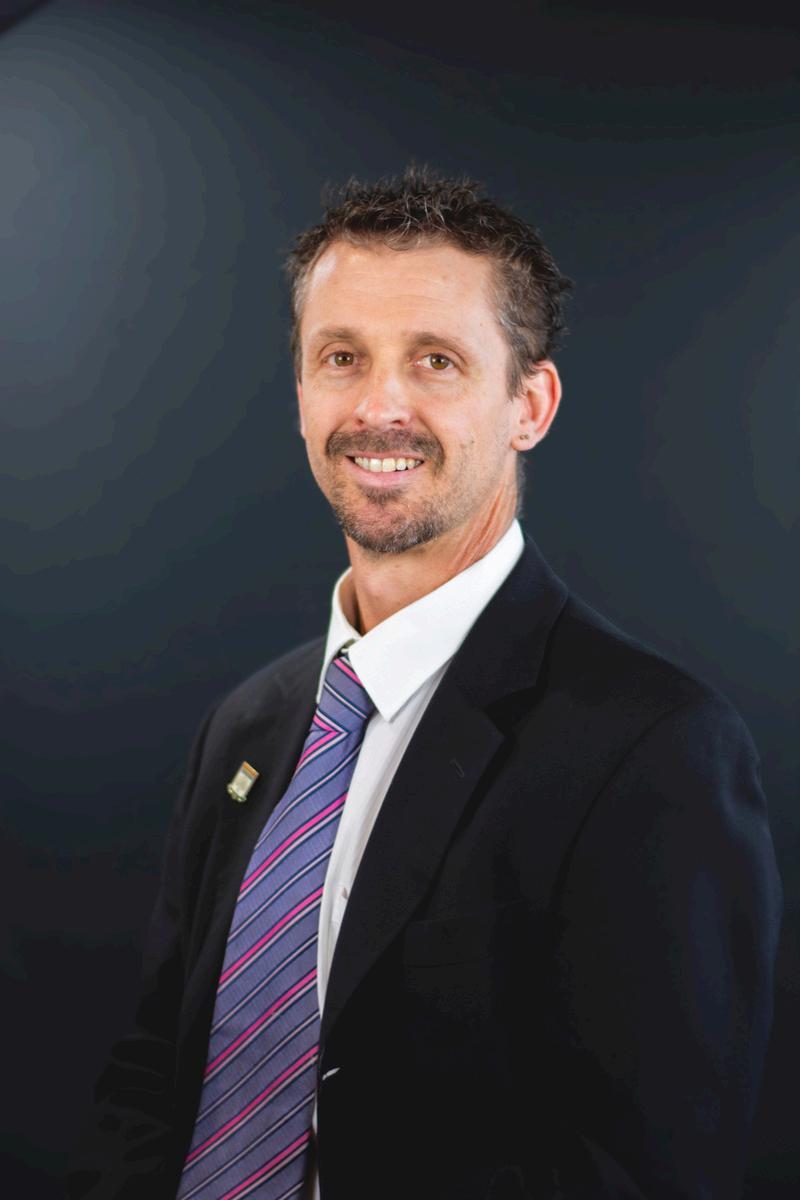
As a performance professional, Simon has gained extensive experience performing a multitude of instruments as a live artist across a variety of styles
uding jazz, soul, rock, pop, drum and bass ssical and world music in both the original and er music scenes Simon’s unique skill set at ng proficient on all woodwind instruments has vided the opportunity for him to frequently orm in a number of pit orchestras for musical atres productions across Perth He has also eared on a number of albums as a sessional sician including with Western Australian Music ustry award winners Odette Mercy and her Soul mics, Grace Barbe and The Pimps of Sound
on’s passion for teaching music in schools lead im to complete a Graduate Diploma in cation in 2012 and a Certificate IV in Training Assessment in 2017 He has experience ching in diverse classroom settings including eral, specialist and the Certificate II in the ic Industry course which is available for Year 11 12 students at Aquinas College Simon has ked as an Instrumental Tutor in schools and ately for over twenty years and has directed a mber of different ensembles including big bands, concert bands and chamber ensembles Simon has also worked as a piano accompanist He has been a member of staff at Aquinas College in various capacities since 2006
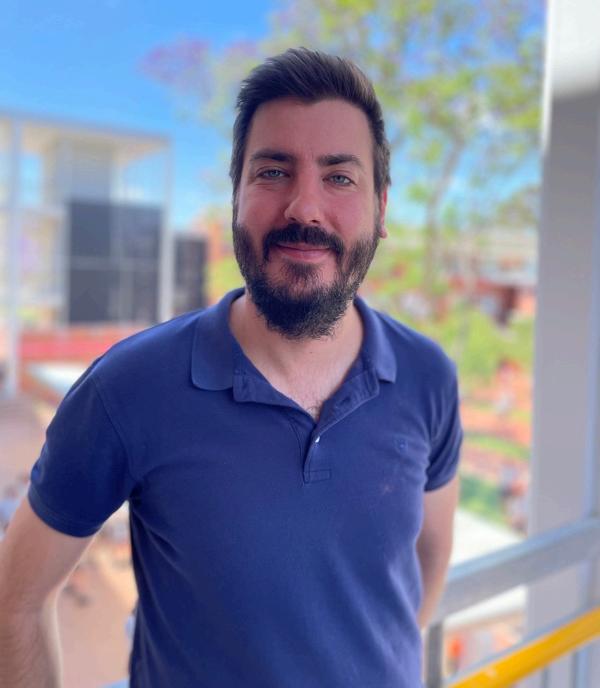
Nicole began French horn lessons at the age of ten By the age of 16 she auditioned and was successful in gaining a place in the Australian Wind Orchestra that undertook a tour of South East Asia and Japan for six weeks
So began her love of touring and playing and sparked an interest in pursuing a career as a musician Nicole completed a Bachelor of Music, majoring in Performance at UWA in 2001 She returned several years later and completed a Diploma of Education, majoring in Music
Since graduation, Nicole has freelanced as a French horn player throughout Australia and internationally across many genres She spent several years on contract with the Australian Opera and Ballet Orchestra whose home is the Sydney Opera House She also spent 18 months in Singapore performing the Lion King for Disney at Marina Bay Sands
Nicole has returned to Perth after 12 years and now regularly performs with the West Australian
uated from the West Australian Academy ming Arts with First Class Honours in Jazz ance in 2014
ng over the past 14 years, Marc has ed, recorded and toured with groups and ch as James Morrison, Fred Wesley, Garzone, Jamie Oehlers, Matt Jodrell, Tal en Vanderwal and Daniel Susnjar and ic Brass Band, for which he was the director between 2012-2020
ed his debut solo album “People” in 2018 ntly works with the Kate Pass Kohesia e, The Late Night Organ Donors, Steve Band and Jamie Oehlers “Blowfish” e as well as regularly composing and g for the Marc Osborne Quartet
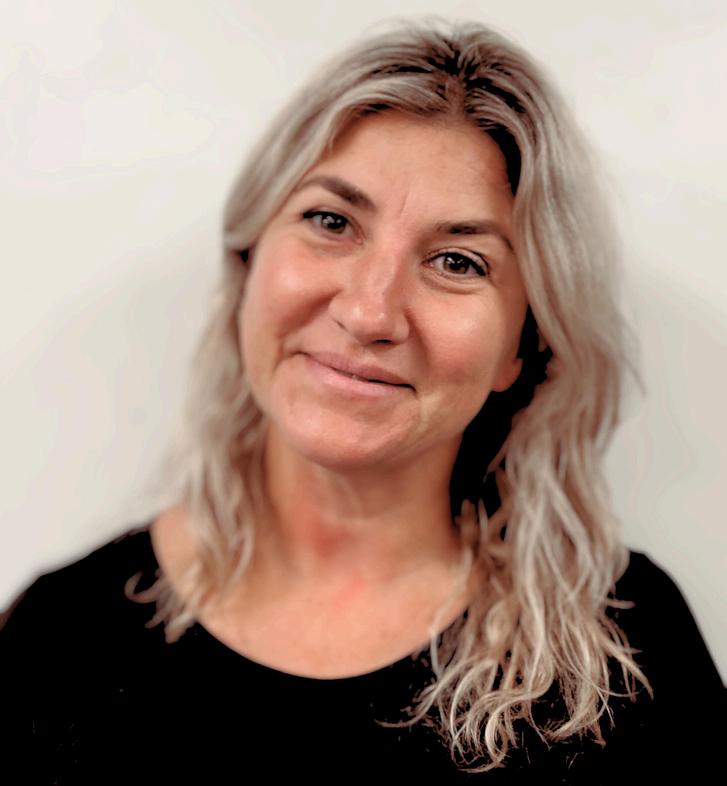
Nicole has taught extensively in Perth and interstate since finishing her studies She has worked for a number of private schools in the metropolitan area and also for the Education Department program IMSS
In both Sydney and Melbourne Nicole taught in the private school sector as well as having taught in her own private studio. Nicole has been teaching at Aquinas since 2018

Born in Lancashire, England, and raised in Perth, Adrian Kelly began playing trumpet at six
He has built an international career as a performer, composer, and educator in jazz, pop, and classical music Currently pursuing a PhD at Edith Cowan University, he has served on the Australian Trumpet Guild board since 2019
Adrian has performed with Hugh Jackman, Ray Charles, Patti Austin, Tim Minchin, and Bonobo From 2010–11, he toured with Jacky Cheung, playing 146 shows for over three million people

as receiving various scholarships and awards including a Commonwealth Scholarship, and the TSO Brass Scholarship
Holding degrees in performance, musical arts, and postgraduate qualifications in orchestral practices, Rob has developed and sustains a portfolio career as a freelance musician

A former pr Chamber O performing s taught at leading universities and presented sterclasses internationally His music has been ised as “intricate and evocative” (Sydney

All students will be learning as part of a group.
Lessons are 30 minutes and take place every Thursday on a fixed timetable This means students will be coming out of class at the same time each week This allows the classroom teacher to plan their Thursday teaching around the students who are absent from their classes at regular times each week and results in a more productive use of classroom time, despite the interruptions
In the case of excursions, incursions, whole school assemblies or sport events, lessons will either be postponed until the following week or the lesson timetable will run to a modified schedule which will be emailed to classroom and instrumental teachers only
You will see an outline of the lesson schedule below Students are only required to bring their instrument to school on the weeks that a lesson is scheduled All instruments must return home by Friday afternoon
Year 4 String Orchestra/Band will commence week 4 each Thursday at 830am in the Library/Junior Music Room, respectively
During Term One all instruments will be stored in classrooms under the guidance of the classroom teacher Double basses will need to be stored in the Junior School Music Room from the start of the day through to 3pm Double basses are not to be stored in the Year Four classrooms
WEEK 1 No Instrumental Music lessons
Lessons commence
WEEK 2
3
4
5
6
7
8
9
WEEK 10
Music Lesson 2 Year 4 Band & Orchestra
Music Lesson 3 Year 4 Band & Orchestra
Music Lesson 4 Year 4 Band & Orchestra
Music Lesson 5 Year 4 Band & Orchestra
Music Lesson 6 Year 4 Band & Orchestra
Music Lesson 7 Year 4 Band & Orchestra
Music Lesson 8 Year 4 Band & Orchestra
Music Lesson 9 Year 4 Band & Orchestra
It is our intention to provide a number of spare Double Basses which remain at the school and will alleviate the need to bring these instruments to and from school each week It must be noted however, that there won’t be enough spare basses for each boy to use in orchestra so they will need to share during these times.
Ideally it would be preferable for boys to be playing their own allocated instrument, but given the size and logistics involved in moving the double basses, the college provides this option for the students’ and parents’ convenience Parents are very welcome to attend lessons to see how their child is progressing on their instrument, particularly if you have developed an interest in the instrument yourself and are looking for ways to assist your child’s learning at home

Apart from bringing their instrument to each lesson (which also includes bow, bow rosin, and shoulder rest for violin and viola) students are also required to bring/provide the following:
Music Diary (supplied to students in first lesson)
A pencil
Display file (for practise copies of orchestra pieces or other additional music) Please label with your son’s name.
A smile and positive attitude for learning!
Cello and double bass students may be able to fit the above items in their cases; however, other instrument cases are much smaller
The Uniform Shop sell Music satchels, much like the Library satchels, otherwise a plastic case big enough to hold the above items will also help to protect books and stay organised Instrumental music teachers will assist students during their first lesson with this
The purpose of the music diary is for teachers or students to record the teaching concepts or repertoire to be worked on during home practice In turn, students are required to record the number of minutes of practice each day
Parents are required to sign the page at the end of that week’s rotation to show that you acknowledge the amount of practice your child was able to complete. This presents an opportunity to discuss with your child as to whether they have successfully met their goals and completed the recommended weekly practice
Music diaries are also a valuable tool for teachers and parents to communicate If you have any questions please write them in the music diary For more urgent or confidential matters you can contact instrumental teachers via email Please refer to the Contacts list on page 13
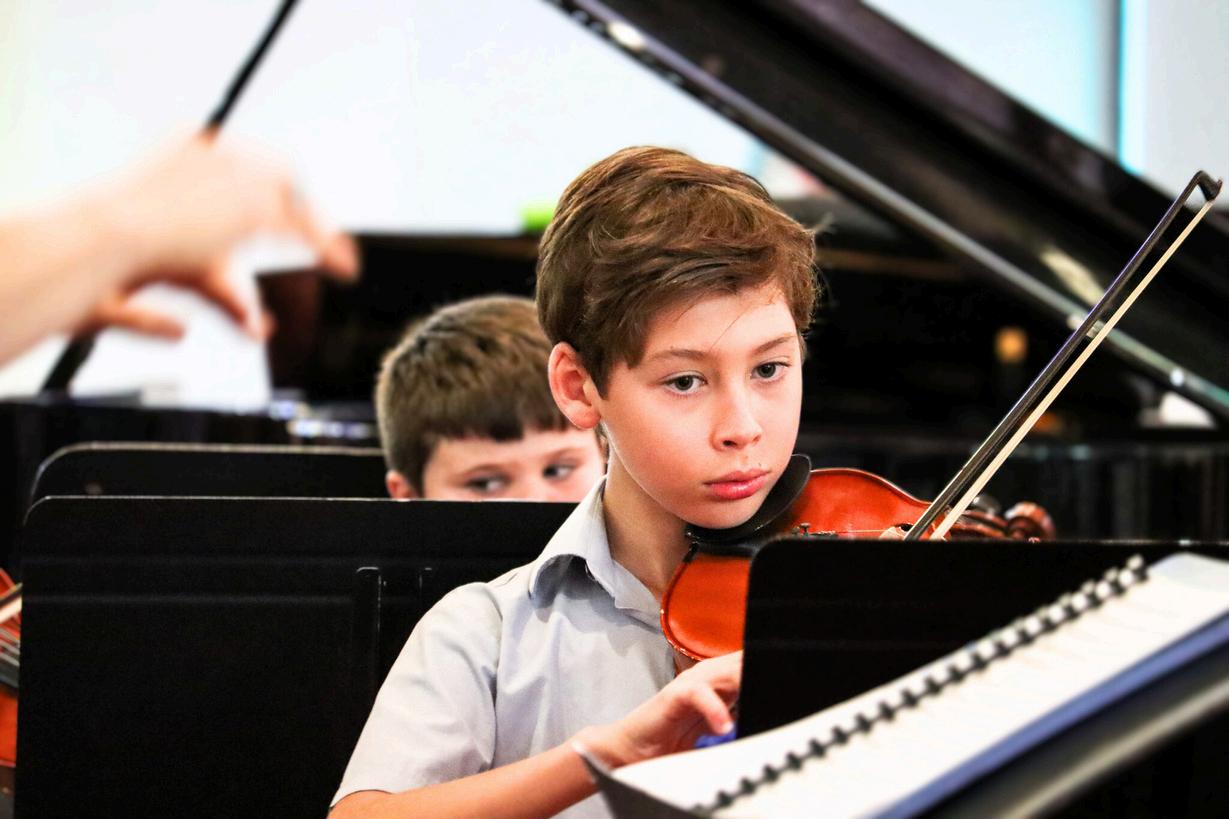

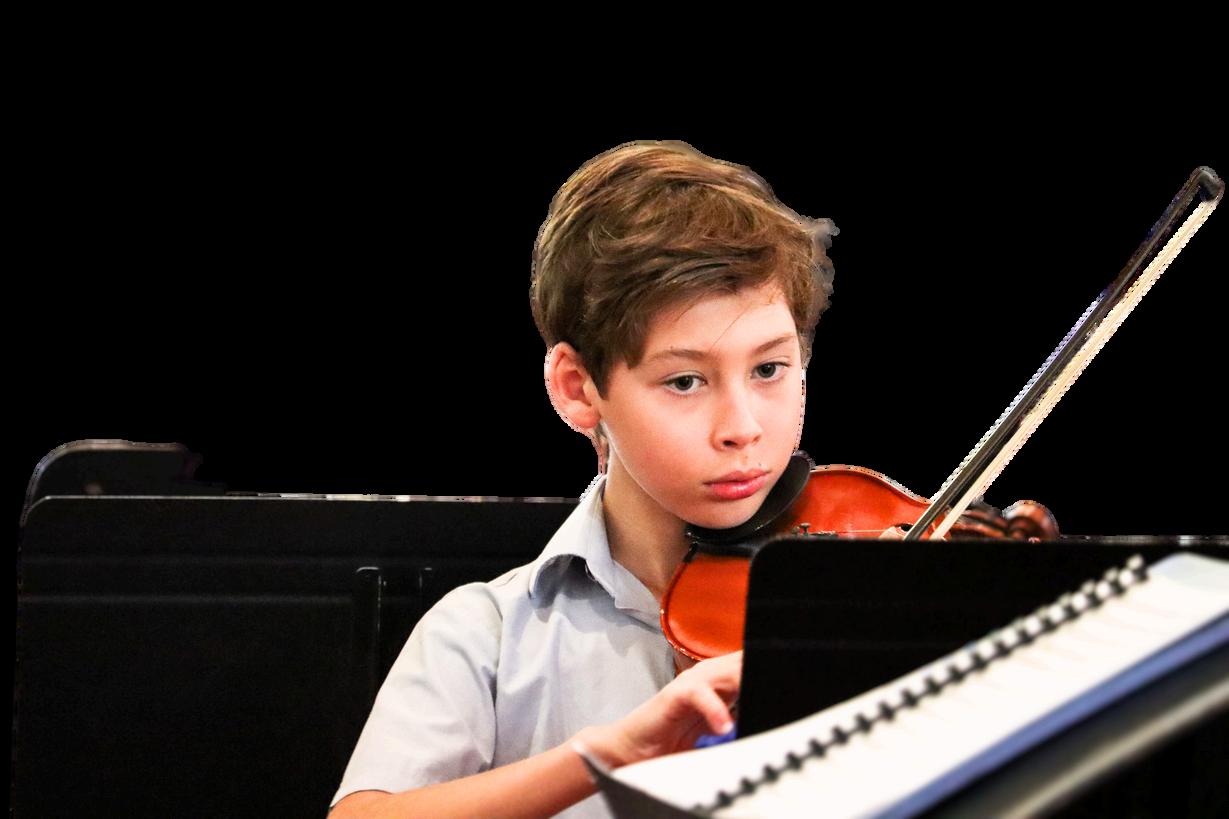
All students will be using instruments hired from WA Music and Musicorp.
All students will have an instrument allocated to them based on the sizing recorded at orientation last year Each instrument has a serial number, usually located in the pegbox (below the scroll) and sometimes also on the outside of the case These serial numbers will be recorded against your son’s name in a database as well as written in the front of their music diary In some cases, students may need to upsize to a larger instrument during the year This will be left to the discretion of the instrumental music teacher
In general, all instruments need to be handled with the upmost care String instruments are particularly fragile as they are acoustic instruments and they naturally expand and contract based on conditions
There are parts that should not be touched or knocked and these include the tuning pegs, fine tuners and bridge It is best not to try and tune your son’s instrument (using the tuning pegs or fine tuners) unless you have had some string training A lot of the time this results in snapped strings
The bridge holds the strings in place and is not permanently attached to the body If knocked, it will come out of place very easily and this in turn will affect the strings Over tightening the strings can also collapse the bridge, which is another reason not to attempt tuning at home Violins and violas come in hard cases, whereas cellos and double basses have soft fabric cases
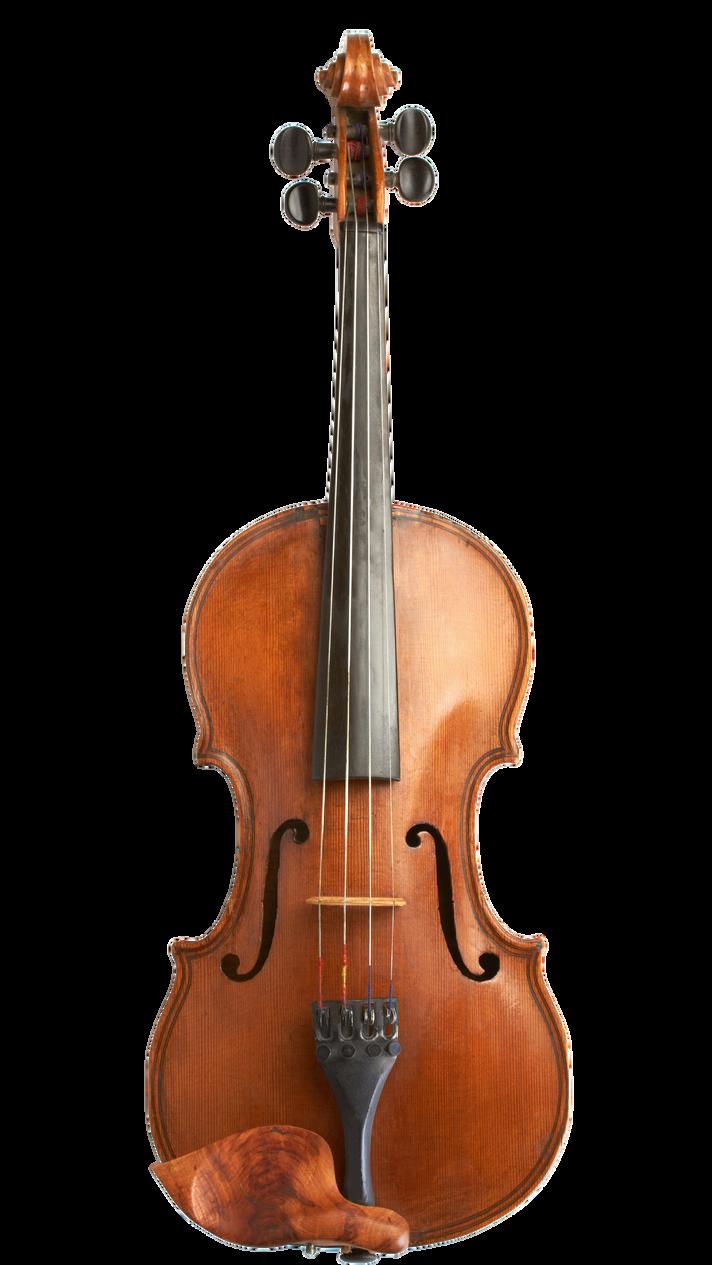
At no time should these instruments be placed on their bridges, in or out of the case Cellos and double basses are best stored on their sides, and when travelling in a vehicle let common sense prevail

The bow requires equal care and should always be kept in its case when not in use As shown by the instrumental teacher, the hairs on the bow are pulled/pushed across the strings to produce sound
There are some important things to remember about the bow:

1 The screw loosens and tightens the hairs on the bow
2 Hairs should be loosened when stored in the case
3 Hairs should be tightened when used to perform
4 Over tightening will break the strands of hair There stick should still appear bowed otherwise the hairs are too tight
5 Hairs should never be touched as your hands carry oils and dirt that will dirty the hairs and cause damage
6 Hairs will sometimes break off on their own accord When this happens, it is better to cut the hair off with scissors rather than puling the loose hair off with a ripping motion
Loss of instrument or damages
In the event that your son’s instrument results in minor damage that cannot be repaired by an instrumental teacher, it will be returned to our supplier for repair
Therefore diligent care must be taken at all times when handling, transporting or storing the instrument. It is in your son’s best interest that he has an instrument for orchestra and lessons, otherwise it can be quite disruptive to his learning and progression
In accordance with the loan agreement with WA Music, damage that renders the instrument or its parts non- playable or loss of the instrument or its parts, such as the bow or shoulder rest, the college will incur a fee which will be passed onto parents. In the event of theft, the College must be notified immediately and a Police Report number will be required


The Year Four String Program Loan Agreement outlines the expectations and responsibilities of parents if such incidents occur This document needs to be signed and returned to the College by Week Six, Term One.
Brass instruments are made of shap metal They dent easily if dropped or bumped and this can affect the soun Valves (trumpet and French horn) an slides (trombone) require application slide oil to function properly

Your teacher will show you how to d force the valve slides to move The m detachable – store it in its proper spo and be careful when inserting it into instrument Trombones need to be assembled –your teacher will show you how to attach the slide
When you have finished playing, empty the water valve and leave the instrument in its case with the lid open for a few minutes to let it air out Make sure the clasps on the case are closed before you try to pick it up!
You can buff your instrument with a soft cloth but don’t try to shine it with metal polish!
pipe
1st valve slide 3rd valve slide 1st 2nd 3rd Mouthpiece
2nd Slide Brace 1st Slide Brace
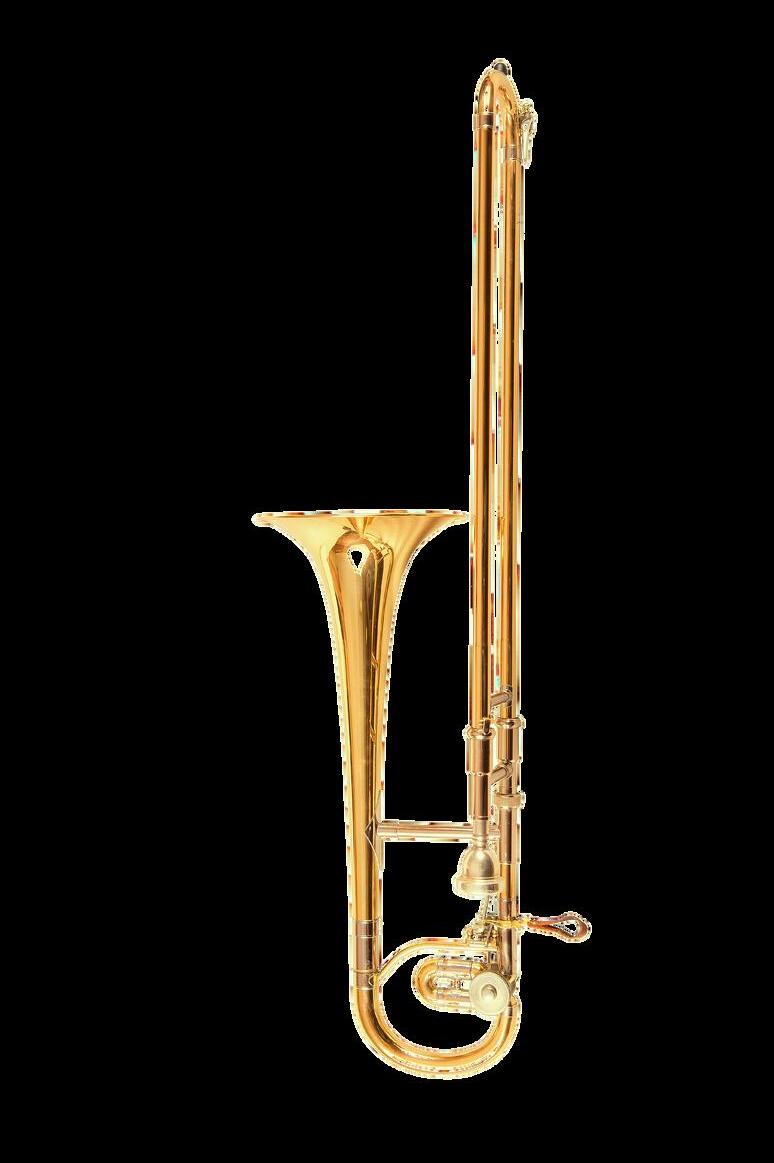
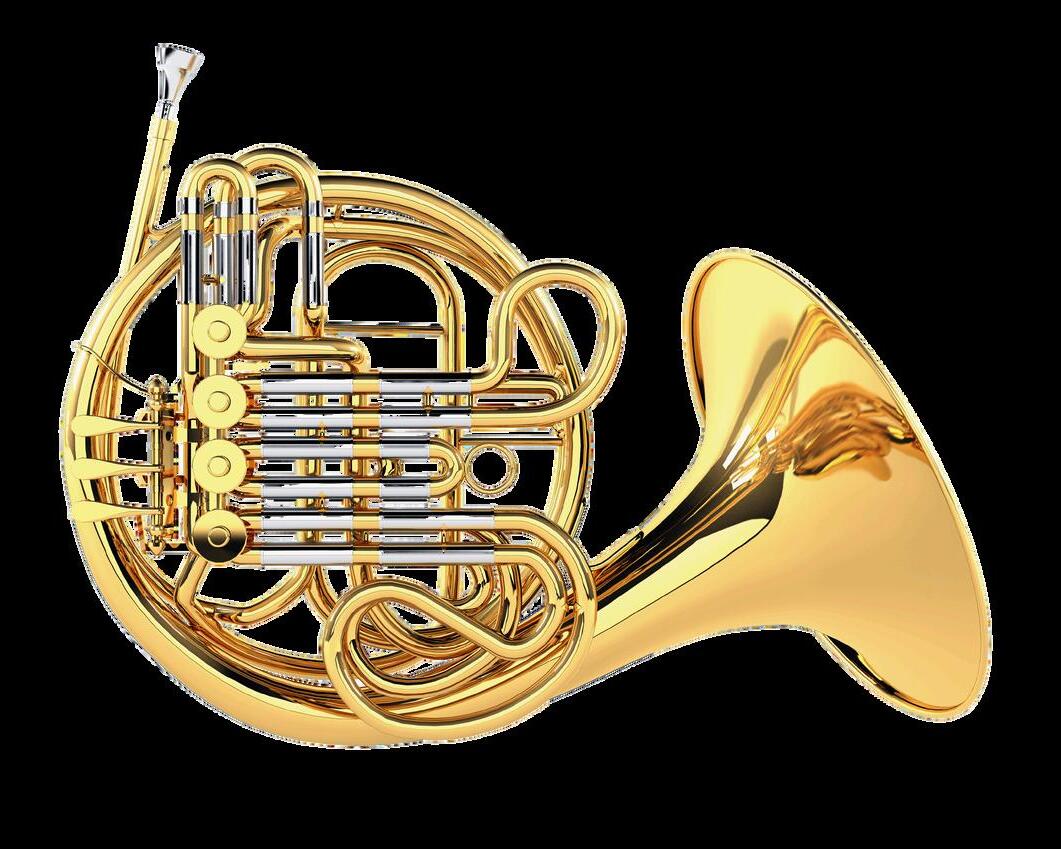
General Brass Care Tips
You can wash the mouthpiece with warm, soapy water, making sure you dry the inside thoroughly. If the mouthpiece gets stuck, do not attempt to remove it by force You need a special tool to release stuck mouthpieces
Wipe down the instrument with a soft cloth to remove fingerprints and residue but don’t try to shine it with metal polish!
Pitch is affected by temperature Be sure to warm up your instrument before playing by blowing air through it Don’t leave it in a hot car Top valve cap
Make sure your slide is fitted to the correct side of the trombone and that the slide lock is on when you pick it up.



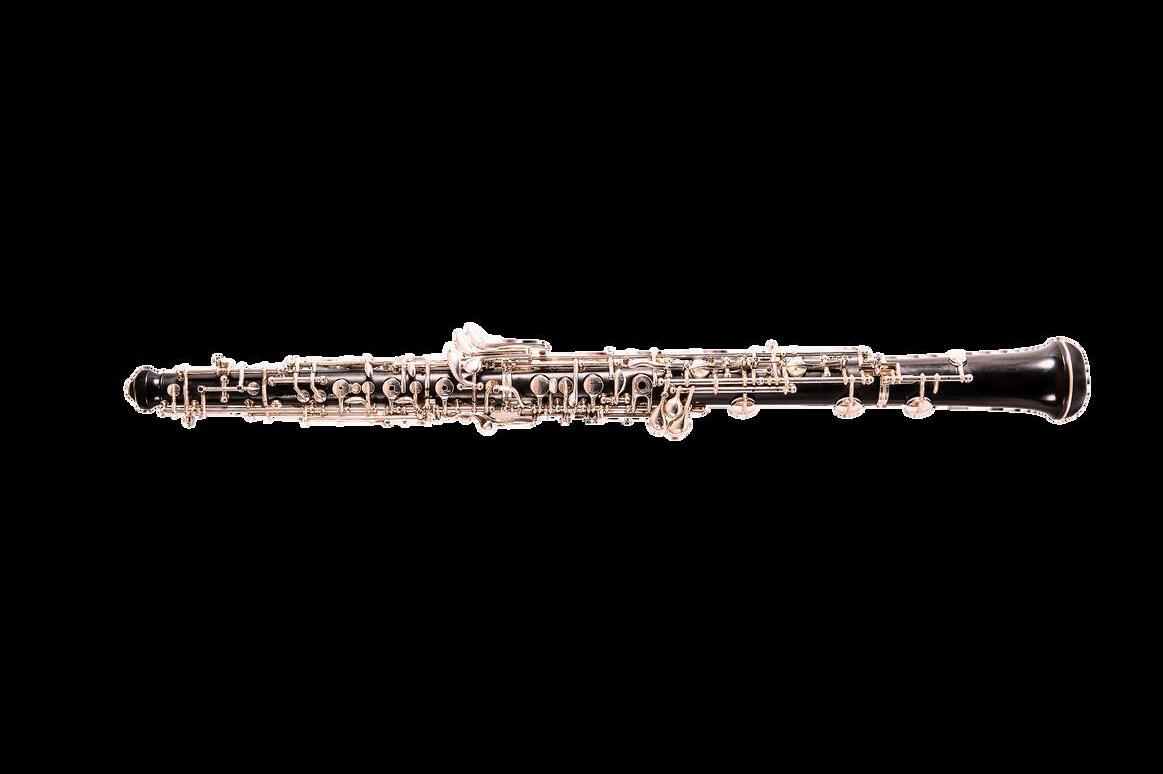
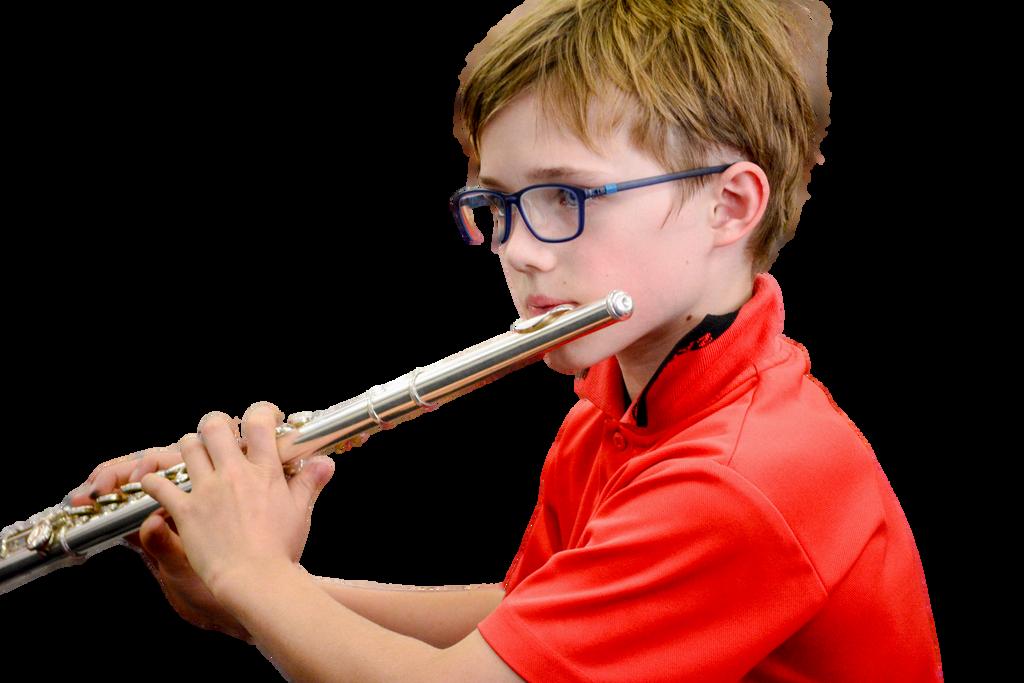

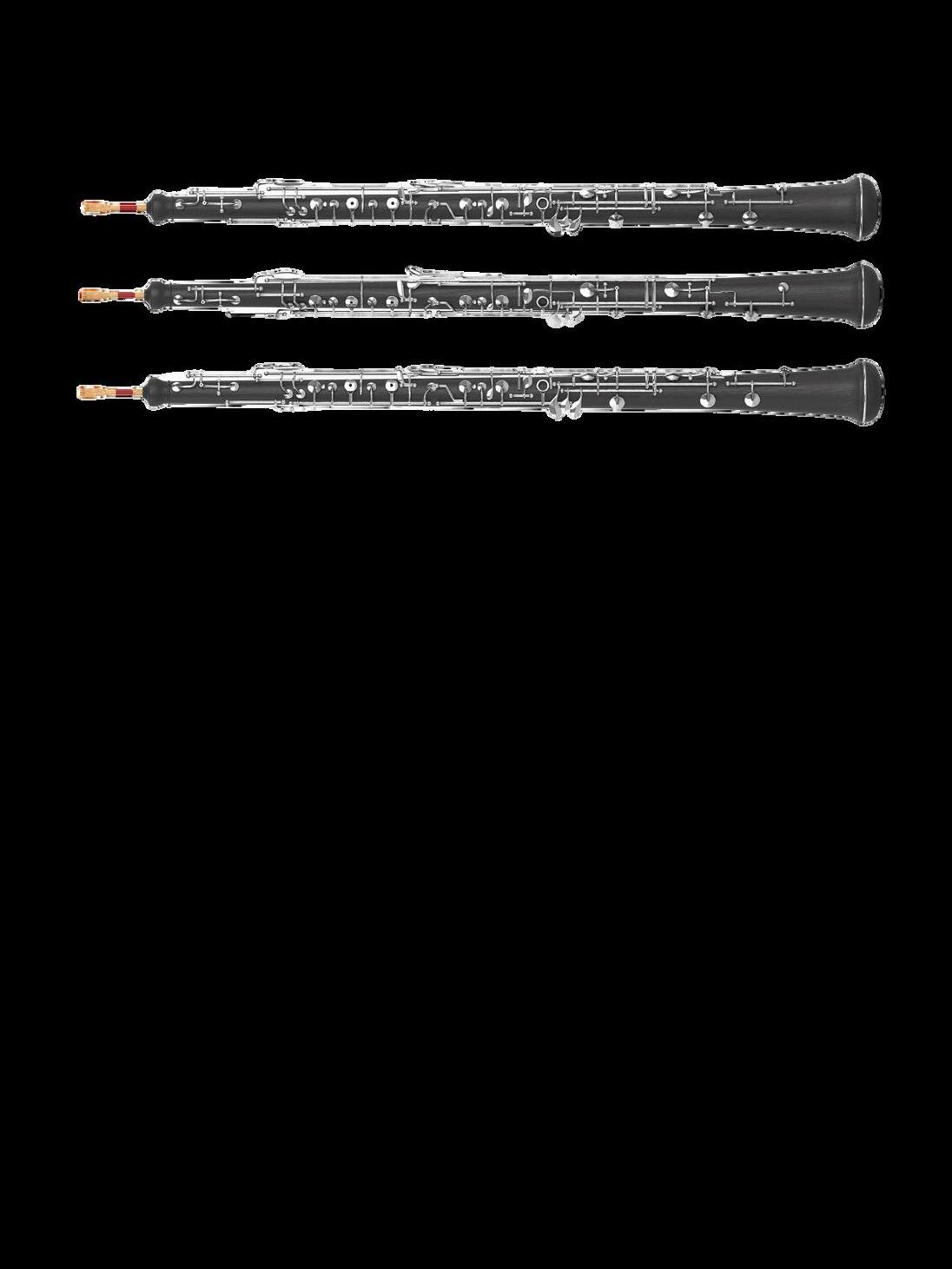
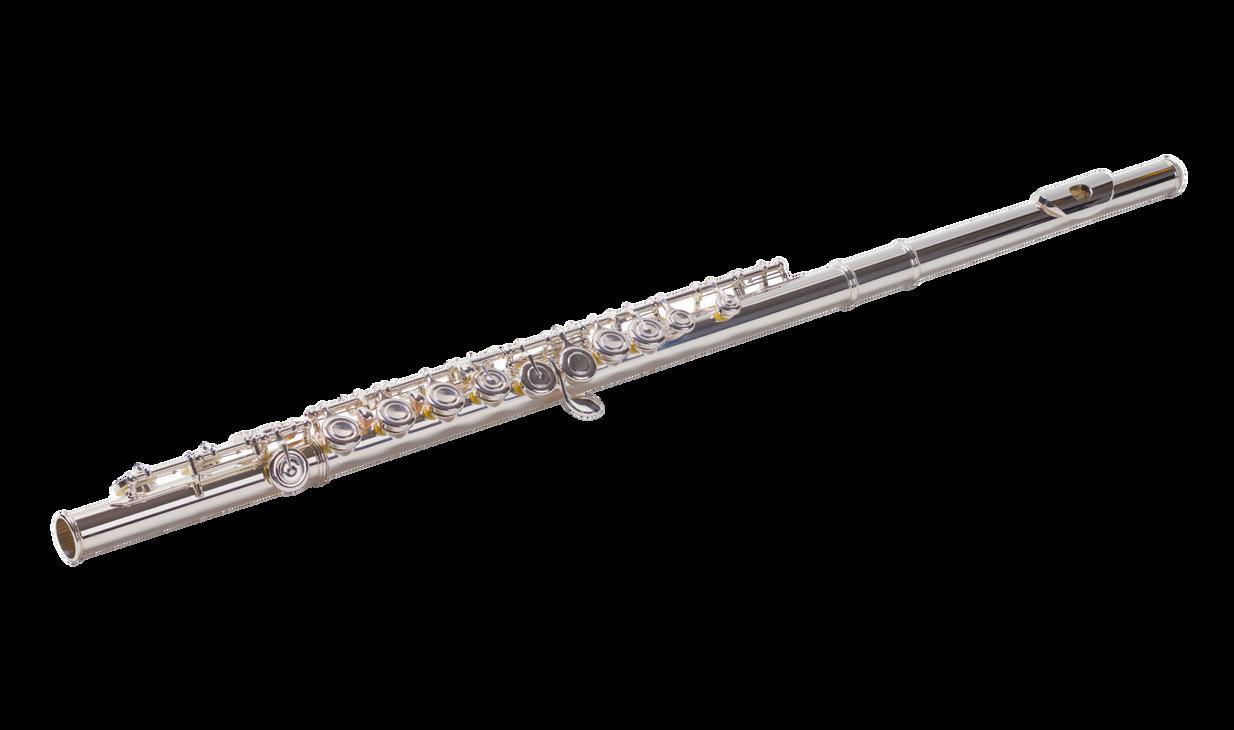
All woodwind instruments are basically pipes fitted with elaborate and delicate keys These are not to be forced to open or close
Do not try to adjust these yourself – show your teacher if you think there is a problem The keypads should be able to open without sticking
The instruments are stored in their cases in parts. Make sure you assemble them as instructed Sometimes there are overlapping keys that need to be lined up correctly Stiff joints that have cork seals can be smeared with a tiny bit of cork grease to help them connect smoothly
Neck Cork
Mouth piece
Neck
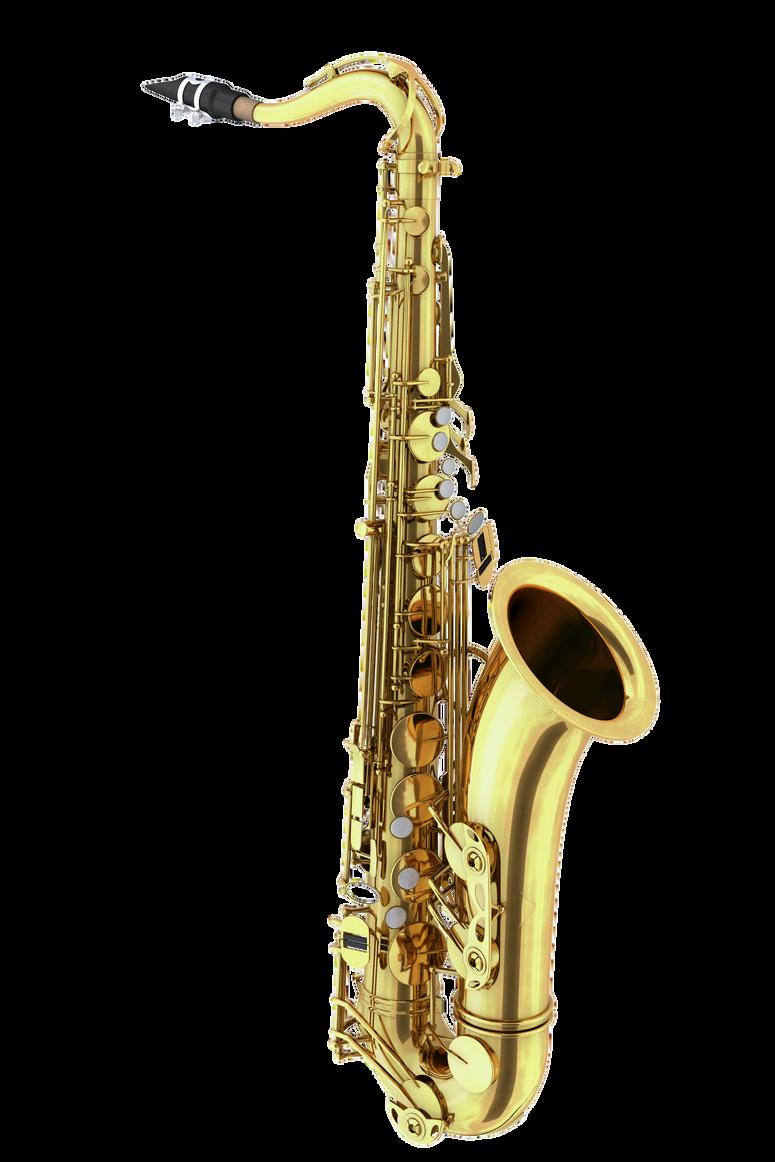
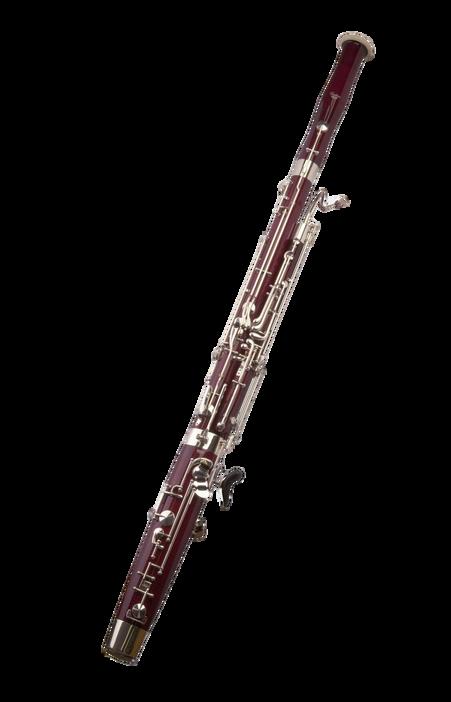
Octave Key
Screw
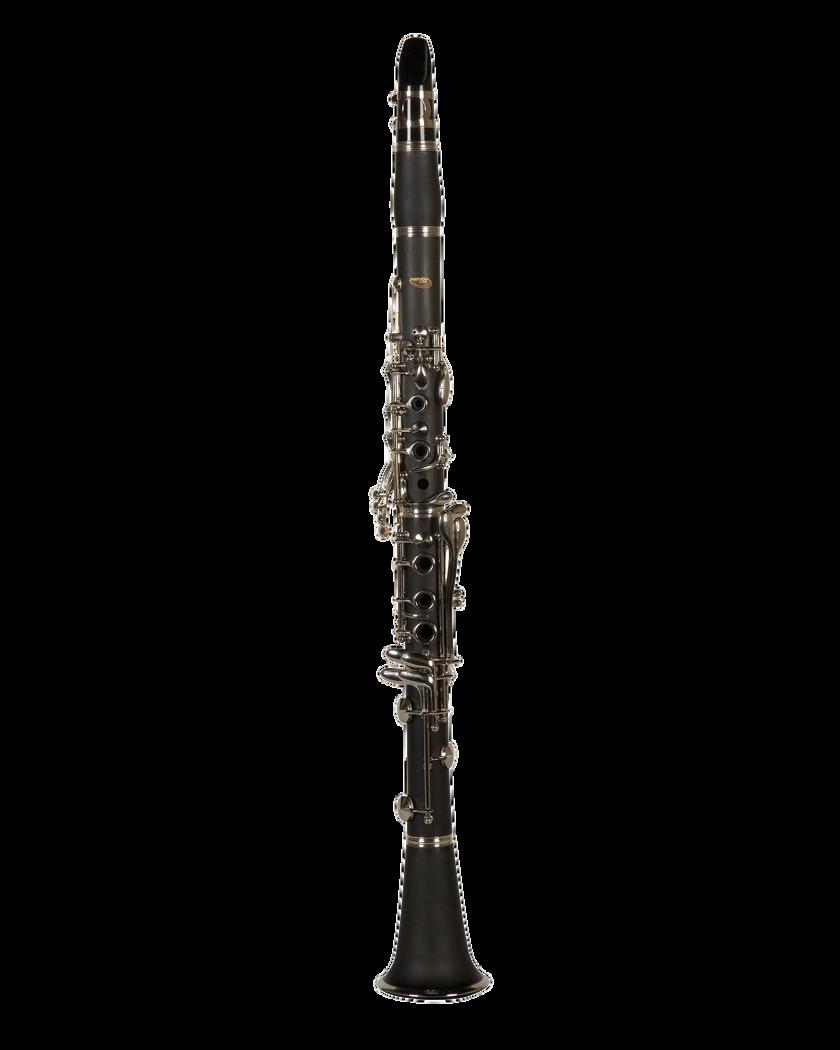

Your teacher will be specific as to the duration and regularity with which home practice should be taking place To put it general terms, home practice is like training with a sporting team or studying for a test, the best results occur over short but regular practice sessions.
The idea of practice is not to work on the things we can already do, but to work on the sections that are challenging and extra require work Playing pieces for fun is always encouraged, but always allow time to work on techniques and passages which need attention, as directed by the teacher Playing for family members should be encouraged as it improves confidence and performance presentation
Short practice sessions multiple times during the week is better than practicing for one hour the day before your next lesson Obviously, you and your child will need to agree to a practice schedule that works with your day to day family schedule, and this can relieve some of the pressure parents and students feel when trying to fit another activity/commitment into an already busy schedule
Students will all be learning from one of the following method books: ‘Vamoosh’ violin or viola book 1 and 1.5 by Thomas Gregory. Backing tracks are available online using the link: Vamoosh String 1 Backing Tracks zip and Vamoosh String 1 5 Backing Tracks
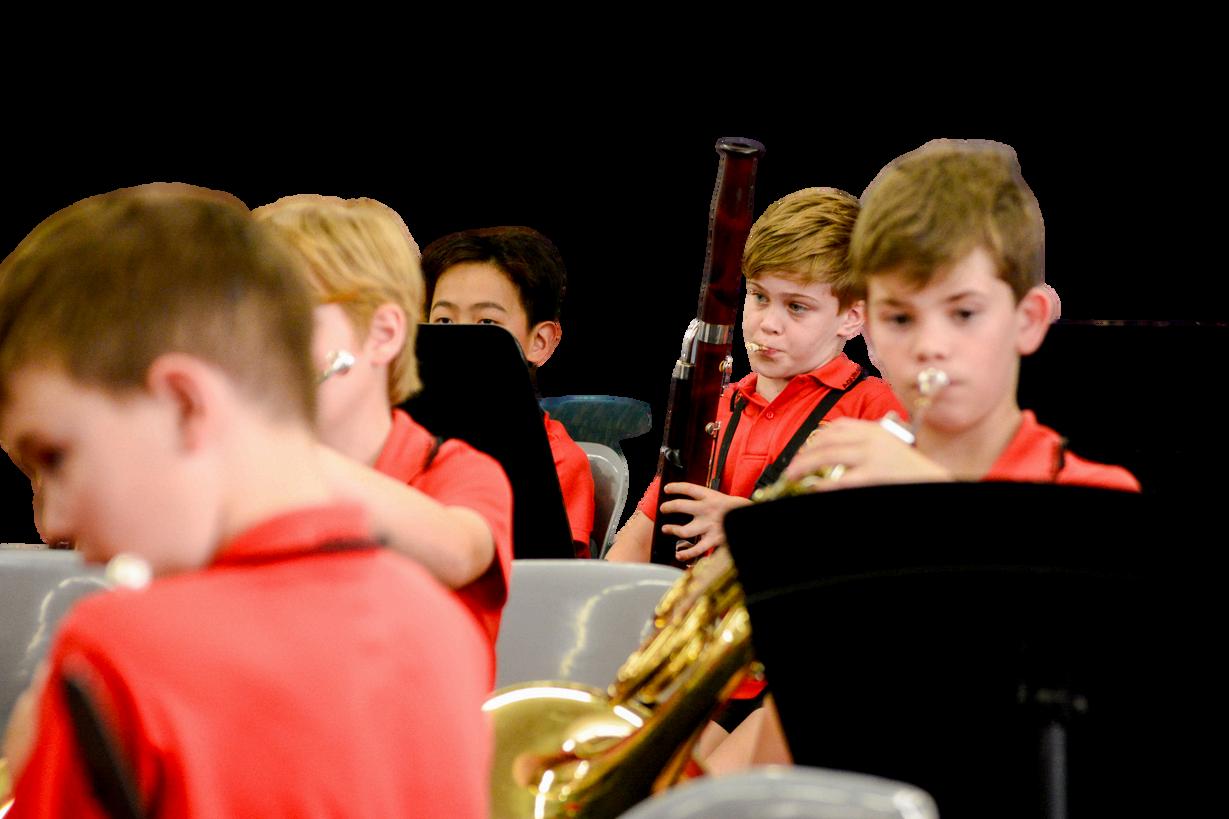
“Strings in Step for Cello” by Jan Dobbins Backing tracks are available online using the following link: https://global.oup.com/booksites/content/9780193221383/audio/ This is a good tool to use when learning to play in time with accurate rhythm Backing tracks can be played directly from the website or downloaded as mp3 files with which you can create a playlist on a device “Strictly Strings” Bass Book 1 by J Dillon, J Kjelland and J O’Reilly


“Standard of Excellence” Comprehensive Band Method by Bruce Pearson for all brass and woodwind instruments.
Your child should have a space or room at home for productive practice and we advise that siblings (younger or older) should not have any contact with your son’s instrument It will usually result in damage. Students need to remain seated or standing in one place when playing their instrument.
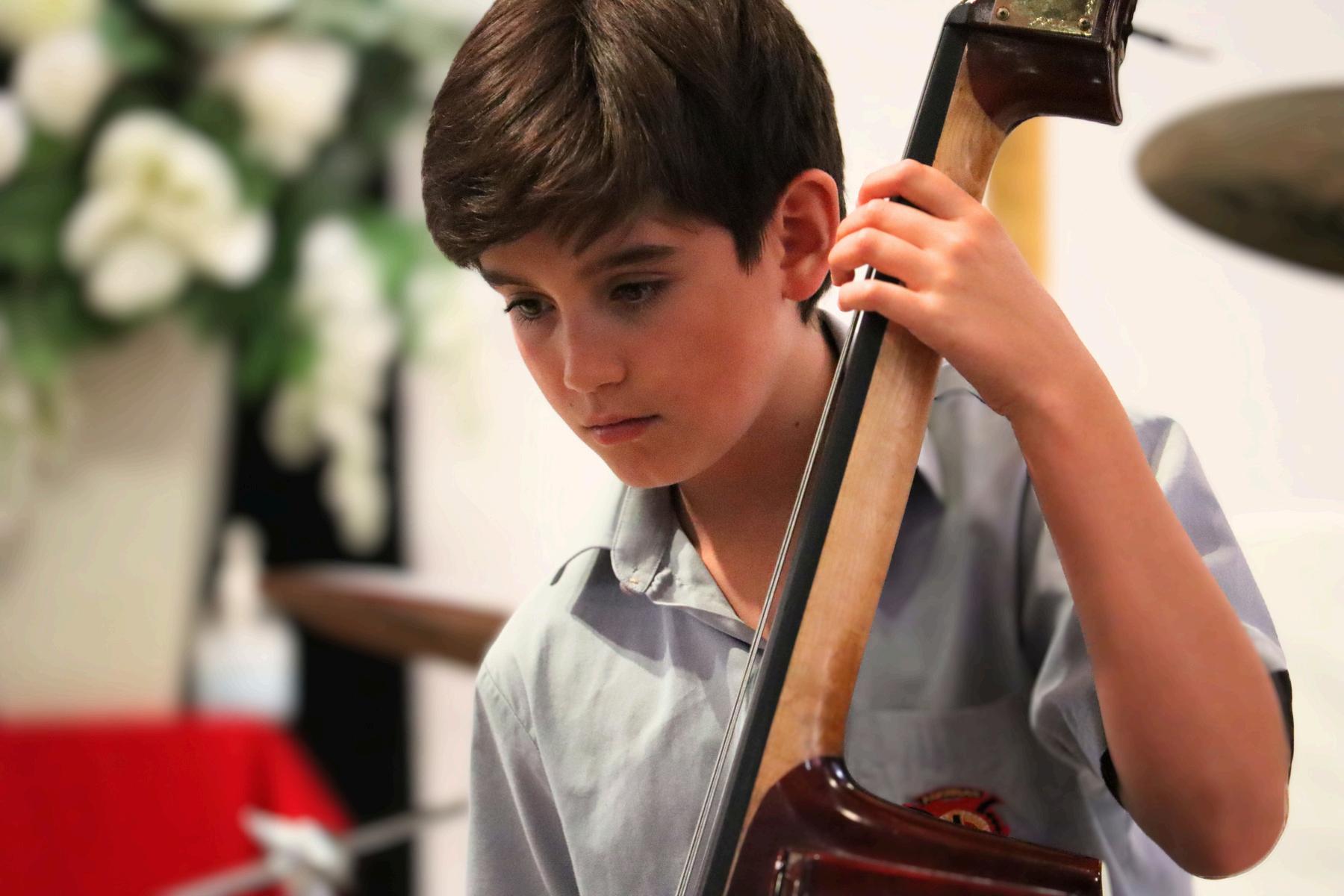
“I like learning Cello because of the teachers. The teachers are really nice, and I love the sound when we all play together. The music the Orchestra plays is always nice to learn”.
Ewan Kent

“I have enjoyed the pieces that we play, and the conductor is skilled, and makes us laugh sometimes I have learnt a lot to expand my brain, and the trombone is fun to play I’ve loved the chance to play with my friends, and I am excited to continue the trombone next year”
Mattia Pascuzzi
“I’ve liked playing in band as it has helped me learn skills that are important to playing clarinet. I love playing clarinet as it is the same instrument Squidward plays. Overall I will miss year 4 band as it has been super fun and I’ve enjoyed playing with all the other instruments”

Lawson Burnett
“I’ve loved learning the saxophone as I am able to play it with my mum who also plays Saxaphone. I have enjoyed being a part of band as I have learnt to play with many different instruments and perform together. I have especially enjoyed learning saxophone with Mr Osbourne as he makes it a fun game which encourages us to do our best”.
Kobe
Gonsalves
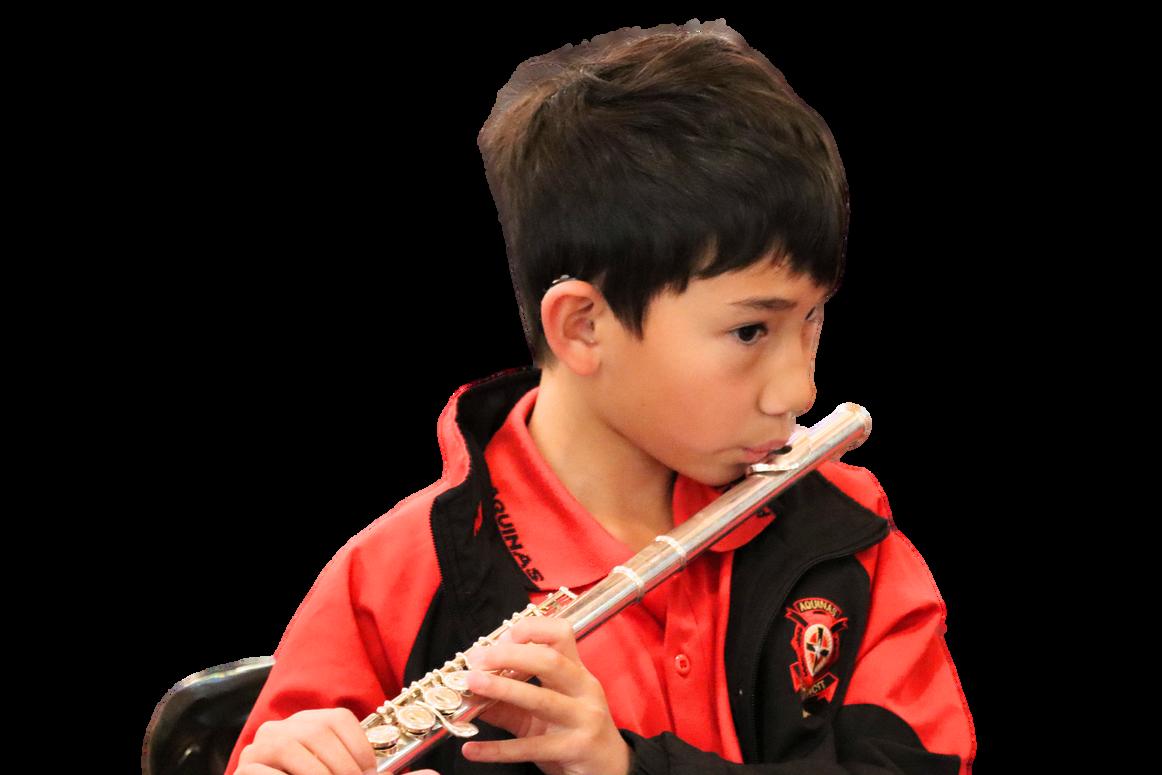
I have enjoyed learning and playing the Viola this year because it’s relaxing and not stressful. By being in the Orchestra, I have learnt how an ensemble works and how we can work as a group to make it sound better.
Krish Singh

I have enjoyed playing the saxophone this year. I thought it was a good challenge and liked the sound of the instrument. I have enjoyed getting to play in a band and learning about how to balance to hear all the parts and I will be continuing next year.
Jremy Grant-MacKay
Adrian

Brass
Nicole
French
Rob
Strings Tom
Brian Kruger Violin/Viola
Amber
Adrian Kelly@aquinas wa edu au
Nicole Dixon@aquinas wa edu au
Robert.Coleman@aquinas.wa.edu.au
Tom Berkmann@aquinas wa edu au
Brian Kruger@aquinas wa edu au
Woodwind
Marc Osborne Alto Sax/Clarinet/Flute
Simon Montgomery Bassoon/Oboe
Amber Day@aquinas wa edu au
Marc.Osborne@aquinas.wa.edu.au
Simon.Montgomery@aquinas.wa.edu.au

www.aquinas.wa.edu.au
